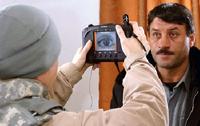-
Former head of MI6 calls for new surveillance pact between governments and ISPs
The former head of British intelligence agency MI6, Sir John Sawers, has called for a new surveillance pact between Internet companies and U.S. and U.K. security services. Both groups could work together as they had in the past to prevent a repeat of terror events such as the recent Paris attacks, he said. American and British law enforcement and intelligence agencies are urging major Internet companies to provide backdoors or access to encrypted e-mails and other forms of Web communications. “I think one benefit of the last eighteen months’ debate [since Snowden’s leaks were made public] is that people now understand that is simply not possible [to keep the public secure without surveillance] and there has to be some form of ability to cover communications that are made through modern technology,” Sawers said.
-
-
Belgium terror raids and Paris attacks reveal urgent need for pan-European security
In the immediate aftermath of major attacks in Paris, counter-terrorism raids in Belgium saw two suspected terrorists killed and another arrested. These incidents have dramatically raised the sense of insecurity across Europe — and they’ve done so at a time when Europe’s security infrastructure is struggling to cope with the threats it faces. European security agencies, both internal and external, must urgently improve their co-operation and co-ordination. After all, Europe’s security challenges know no borders, and they must be dealt with as such. The recent counter-terrorism operations and arrests across Europe show that security agencies are moving toward quicker and sharper preventative action. What they do not demonstrate is that there is yet any seriously coordinated approach to European security. Achieving that is central to reducing the sense of insecurity across Europe at a frightening and dangerous time. But there is little sign Europe is confident about how to do it without undermining the very freedoms it is trying to protect.
-
-
No technological replacement exists for bulk data collection: Report
No software-based technique can fully replace the bulk collection of signals intelligence, but methods can be developed more effectively to conduct targeted collection and to control the usage of collected data, says a new report from the National Research Council. Automated systems for isolating collected data, restricting queries that can be made against those data, and auditing usage of the data can help to enforce privacy protections and allay some civil liberty concerns, the unclassified report says.
-
-
Keeping citizens safe while respecting their right to privacy
Surveillance is an increasingly common – and sometimes controversial – activity, designed fundamentally to protect public and property. The rapid increase in information gathered by surveillance cameras however has led to spiraling costs in terms of storage filtering and data checking, and has also led to concerns that innocent citizens are routinely being tracked. Using innovative new technology, EU-funded researchers have reconciled the need for robust surveillance with the right to privacy.
-
-
When the camera lies: our surveillance society needs a dose of integrity to be reliable
Being watched is part of life today. Our governments and industry leaders hide their cameras inside domes of wine-dark opacity so we can’t see which way the camera is looking, or even if there is a camera in the dome at all. They’re shrouded in secrecy. But who is watching them and ensuring the data they collect as evidence against us is reliable? Surveillance evidence is increasingly being used in legal proceedings, but the surveillants – law enforcement, shop-keepers with a camera in their shops, people with smartphones, etc. — have control over their recordings, and if these are the only ones, the one-sided curation of the evidence undermines their integrity. There is thus a need to resolve the lack of integrity in our surveillance society. There are many paths to doing this, all of which lead to other options and issues that need to be considered. But unless we start establishing principles on these matters, we will be perpetuating a lack of integrity regarding surveillance technologies and their uses.
-
-
Police body-worn-cameras can prevent unacceptable use-of-force: Report
As President Barack Obama pledges investment in body-worn-camera technology for police officers, researchers say cameras induce self-awareness that can prevent unacceptable uses-of-force seen to have tragic consequences in the U.S. over the past year — from New York to Ferguson — but warn that cameras have implications for prosecution and data storage. Researchers have now published the first full scientific study of the landmark crime experiment they conducted on policing with body-worn-cameras. The experiment showed that evidence capture is just one output of body-worn video, and the technology is perhaps most effective at actually preventing escalation during police-public interactions: whether that is abusive behavior towards police or unnecessary use-of-force by police.
-
-
Public support for torture declines as people learn the explicit details of torture techniques
Does the American public condone torture when the goal is to prevent terrorist attacks? News headlines reporting the results of a Pew Research Center poll released on 9 December indicate more than half of Americans do. That finding, however, is not necessarily valid, says Tufts University’s Richard Eichenberg, who argues that the poll is flawed because it is based on a faulty premise. A more accurate picture of the nation’s attitude can be found in responses to polls conducted by Pew, Gallup, and other news organizations and analyzed in a 2010 report. These surveys explained in graphic detail what interrogation techniques were being judged. So while response to more general questions on the use of torture may continue to produce mixed reactions, Eichenberg says public support for torture will decline as more people become aware of the explicit details of torture techniques contained in the Senate report.
-
-
FBI moves cyberthreats to top of law-enforcement agenda
FBI director James Comey said combatting cybercrime and other cyber threats are now top FBI priority. “It (the Internet) is transforming human relationships in ways we’ve never seen in human history before,” Comey said. “I see a whole lot of hacktivists, I see a whole lot of international criminal gangs, very sophisticated thieves,” he added. “I see people hurting kids, tons of pedophiles, an explosion of child pornography.” In October Comey urged Congress to require tech companies to put “backdoors” in apps and operating systems. Such a move would allow law enforcement officials to better to monitor suspected criminals who often escape the law using encryption and anti-surveillance computer software.
-
-
Report details brutal interrogation practices, lax supervision

The long-awaited report on the CIA interrogation practices was release yesterday, causing a political storm. Many congressional Republicans have expressed concern over the release of the Senate report on the CIA’s use of torture on captured al-Qaeda and Islamist militants, claiming it would set off a global backlash, and threaten the security of American troops and diplomatic missions overseas.Obama administration officials agree that the release of the Senate report or its declassified executive summary is a good reason for concern about the security of U.S. facilities and military bases overseas, but they doubt it would lead to the sort of violence that killed four Americans at a diplomatic outpost in Benghazi, Libya in 2012.
-
-
FAA caught between commercial pressures, safety concerns in regulating drone use
Law enforcement agencies in major U.S. cities have expressed concerns about the possible use of drones by terrorists to launch bombs against key U.S. targets, including shopping malls, stadiums, and even banks. The FAA is in a tough spot, says one expert.”If they come out with rules that are not protective enough and then there’s some sort of an accident then they will be criticized for not having been more careful with this technology,” he says. “On the other hand, if they come out with rules that are viewed as overly restrictive in the name of safety then they are going to be criticized as impeding the growth of the industry, so it’s a very difficult balancing act that they have to navigate.”
-
-
Mobile biometric device expedites identity matching

The Stockton (California) Police Department (SPD) has been quietly testing a state-of-the-art Mobile Biometric Device (MBD) technology for the past four years. Designed quickly to scan fingerprints, irises, and other biological information while officers and evidence technicians are on the field, MBDs can communicate with remote fingerprint databases and confirm matches in as little as three minutes.
-
-
Washington State police overwhelmed by public requests for dash- and body-cam footage

Police departments in Washington State are reviewing their dash- and body-cam programs as they see significant increase in public requests for video footage under the state’s Public Records Act, which puts no limit on the number of records which may be requested nor requires that the person requesting records have any connection to the information being requested.
-
-
Dogs trained on pseudo-explosives could not reliably identify genuine explosives

When it comes to teaching dogs how to sniff out explosives, there is nothing quite like the real thing to make sure they are trained right. This is the message from researchers after finding that dogs which are trained with so-called “pseudo-explosives” could not reliably sniff out real explosives (and vice versa).
-
-
GOP senators block NSA surveillance reform bill
The USA Freedom Act, a bill introduced last year aiming to curtail some of the NSA’s data collection programs, especially those focusing on U.S. phone data, failed last night to reach the 60-vote threshold required to cut off debate and move to a vote. Senator Mitch McConnell (R-Kentucky), the Republican leader, and other leading GOP senators worked hard to defeat the bill. Nearly a year-and-a-half after the Edward Snowden’s revelations, the act was considered the most politically viable effort in four decades to place curbs on NSA activities. Civil libertarians and technology companies supported the bill, as did the White House and the intelligence community – although the latter two did so more out of fear that a failure of the bill would jeopardize the extension of Section 215 of the Patriot Act, which expires next June.
-
-
Wi-Fi signals enable through-wall detection
Engineers prove the concept that local Wi-Fi signals can be used to monitor moving objects and bodies that are otherwise visually obscured. Although fundamentally similar to traditional radar systems, their novel approach is entirely passive — utilizing the wireless signals that already swamp our urban airways. This technology has a wide range of applications from healthcare monitoring, security and emergency disaster relief, to finding earthquake survivors in fallen buildings.
-
- All
- Regional
- Water
- Biometrics
- Borders/Immig
- Business
- Cybersecurity
- Detection
- Disasters
- Government
- Infrastructure
- International
- Public health
- Public Safety
- Communication interoperabillity
- Emergency services
- Emergency medical services
- Fire
- First response
- IEDs
- Law Enforcement
- Law Enforcement Technology
- Military technology
- Nonlethal weapons
- Nuclear weapons
- Personal protection equipment
- Police
- Notification /alert systems
- Situational awareness
- Weapons systems
- Sci-Tech
- Sector Reports
- Surveillance
- Transportation
Advertising & Marketing: advertise@newswirepubs.com
Editorial: editor@newswirepubs.com
General: info@newswirepubs.com
2010-2011 © News Wire Publications, LLC News Wire Publications, LLC
220 Old Country Road | Suite 200 | Mineola | New York | 11501
Permissions and Policies
Editorial: editor@newswirepubs.com
General: info@newswirepubs.com
2010-2011 © News Wire Publications, LLC News Wire Publications, LLC
220 Old Country Road | Suite 200 | Mineola | New York | 11501
Permissions and Policies
